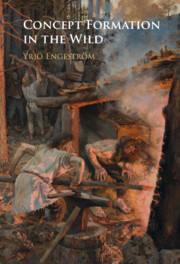
-
- You have access
- Open access
- Cited by 1
-
Cited byCrossref Citations
This Book has been cited by the following publications. This list is generated based on data provided by Crossref.
Sensevy, Gérard and Le Hénaff, Carole 2025. A cultural turn in educational action and research. Journal of Curriculum Studies, p. 1.
- Publisher:
- Cambridge University Press
- Online publication date:
- June 2024
- Print publication year:
- 2024
- Online ISBN:
- 9781009030021
- Creative Commons:
-
This content is Open Access and distributed under the terms of the Creative Commons Attribution licence CC-BY-NC 4.0 https://creativecommons.org/creativelicenses
- Subjects:
- Psychology, Cognition, Educational Psychology


